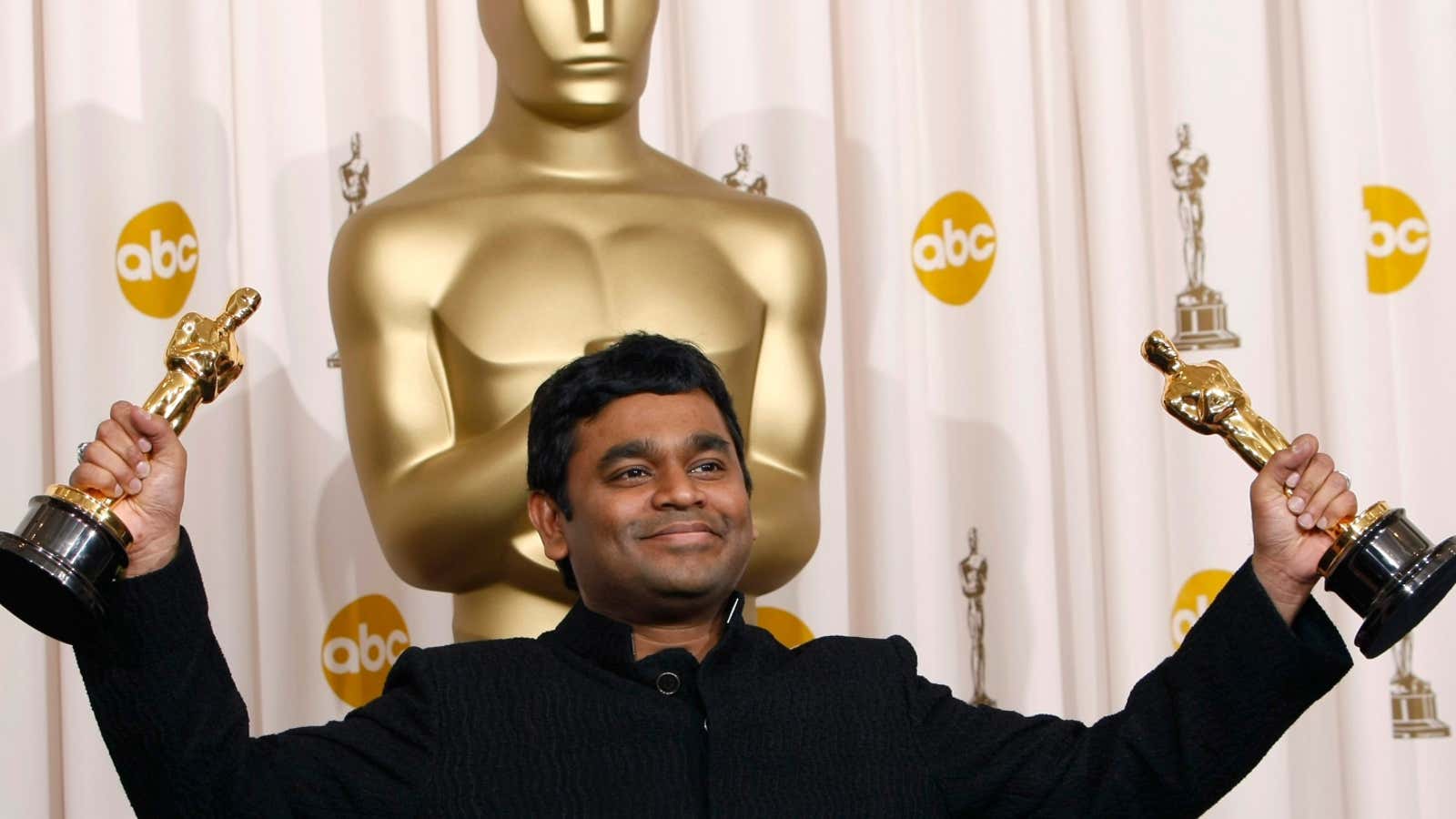The language debate is back on the burner in India. So is its corollary: the north-south regional divide. And none less than Grammy and Academy Award winner AR Rahman, one of India’s most popular musicians, may have subtly made a point this time.
Yesterday (June 4), Rahman tweeted:
His rather loaded message came days after the government of India proposed—and subsequently withdrew—compulsory teaching of the Hindi language in non-Hindi speaking states. The draft national education policy released on May 31 said:
In keeping with the principle of flexibility, students who wish to change one of the three languages they are studying may do so in Grade 6, so long as the study of three languages by students in the Hindi-speaking states would continue to include Hindi and English and one of the modern Indian languages from other parts of India, while the study of languages by students in the non-Hindi-speaking states would include the regional language, Hindi and English.
The recommendation sparked an immediate and intense backlash. The push back was strongest perhaps in the southern state of Tamil Nadu, which has for decades fought against the imposition of Hindi.
Under the circumstance, the tweet by Rahman, a Tamil himself, could be viewed as a hint at the desire for autonomy among the Tamil people. This desire has often set off political convulsions, even violent ones, in the southern part of the country.
This was Rahman’s second tweet in as many days. On June 2, he had tweeted:
This one, while not suggesting any hard stance, hinted that the man behind the background score for Danny Boyle’s 2009 film, Slumdog Millionnaire, was keenly observing the developments.
Not known to be flamboyant or outspoken in public matters, Rahman has often been gently assertive on key issues.
In 2015, when Iranian filmmaker Majid Majidi decided to make a movie on prophet Mohammed, Rahman was to be its music composer. However, a Mumbai-based Sunni Muslim body issued a fatwa against him and Majidi, since Islam bars any form of visual depiction of its founder.
Rahman reacted to the fatwa with a Facebook post. “I am not a scholar of Islam. I follow the middle path and am part traditionalist and part rationalist,” he wrote. “I live in the western and eastern worlds, and try to love all people for what they are, without judging them.”
On June 3, in the face of the backlash, the Indian government amended the proposal on languages. Rahman’s reaction to this, too, was characteristically warm and gentle. He tweeted in Tamil, reportedly saying: “Beautiful decision. Hindi is not compulsory in Tamil Nadu… The draft has been edited.”
